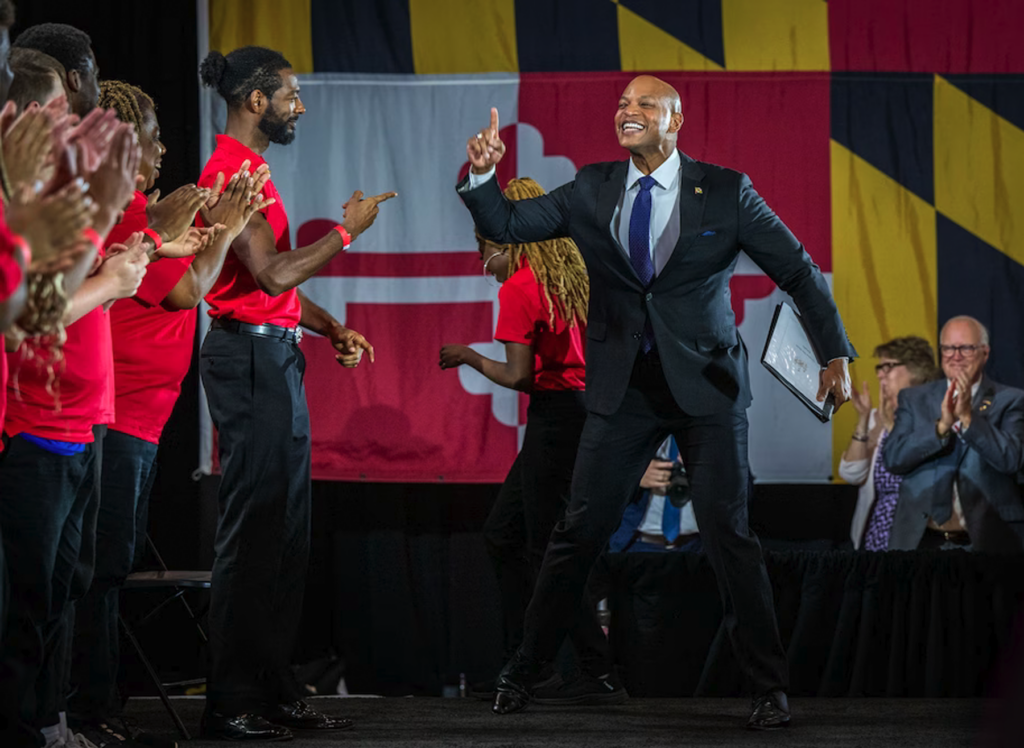The effort is a key step toward one of Gov. Wes Moore’s signature campaign promises: To eventually create a pathway for every recent high school graduate.
By Erin Cox
October 27, 2023 at 7:35 p.m. EDT

Maryland Governor Wes Moore launched two service programs in October, the Maryland Corps Program and the Service Year Option. These programs are designed to benefit government agencies, nonprofit organizations, or mission-oriented for-profit companies. The employees are paid through a combination of state dollars and contributions from the employers that host the participants.
Talisman is fortunate to have gained two staff members through these service programs. Brad Krantz, a long-time expert in horsemanship, will work toward continually schooling and evaluating program horses, instruct participants, and host horsemanship clinics on behalf of Talisman. Jennifer Donnelly, a recent graduate with a degree in Marketing, will work toward elevating Talisman’s social media presence, develop marketing campaigns, and assist in event planning.
We are thrilled to have these two members on our team. We thank Governor Moore for his belief that public service is integral to the community. With the Maryland Corp and the Service Year Option programs, Talisman will be able to continue to provide and expand its services to the local community.
Before the pomp even really began, Maryland’s inaugural class of Service Year members wore broad smiles and streamed past red-lipped cheerleaders with pompoms to celebrate the country’s first state-run service year program.
Participants in this year’s pilot program will earn at least $15 an hour and receive a $6,000 stipend for finishing the program, which state officials hope to expand to 2,000 people per year within four years. Service Year members also receive job and financial literacy training, mentorship and career counseling.
“What’s important about Maryland is it’s allowing us to innovate,” said Michael D. Smith, chief executive of AmeriCorps, the federal agency for service and volunteering that gives Maryland $20 million per year. Standing outside the event, Smith said “the nation is watching” Maryland’s experiment with a state-backed option to funnel willing high school graduates into service-centric paths.
“You are the first wave of showing us a better way, showing us it’s still possible to see the humanity of all people, even across differences,” said Paul Monteiro Jr., Secretary of the Department of Service and Civic Innovation, a new Cabinet-level post Moore created shortly after his inauguration.
Monteiro told the crowd a key piece of the program is “recognizing the value that each person has, the talents that each of you bring that we’re going to refine over the course of this service term to give all of you a tangible way to build a life and find your power through service.”
Employers pick up some of the tab of the weekly wages, and the state pays for others through either grants or tax dollars. A legislative analysis estimated the entire new department would cost $16.4 million in the current budget year.
Moore focused his State of the State speech on the value of service to bridge political divides and frequently says “service will save us” during public remarks. During a speech that lasted more than 15-minutes, Moore laid out lofty goals for the program: “We will build civic bonds. We will restore a spirit of community. We’re calling on all our fellow Marylanders to get to know each other again.”
Truth Burney, 23, said she graduated from Howard University with a prelaw major, but wasn’t landing any of the paralegal or legal assistance jobs she applied for. Now through the Service Year option, she’s working at the Community Law Center in Baltimore, helping with legal-aid cases.
“Fresh out of college, I didn’t really have a work background in legal work, and I believe this will allow me to get those jobs I wasn’t getting before,” she said.




